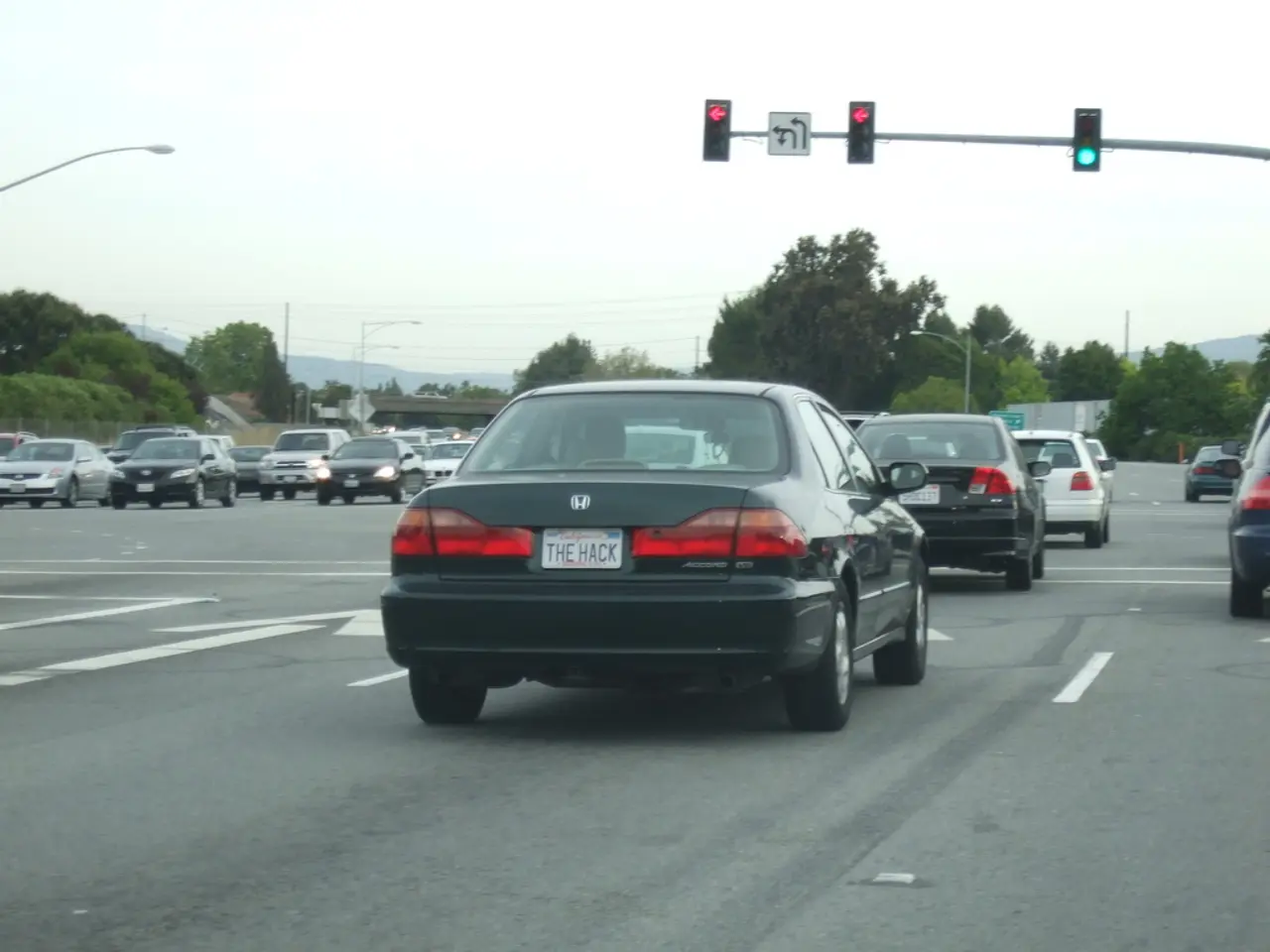German highways face impending traffic congestion for hours.
As the summer of 2025 approaches, millions of cars are expected to hit the roads in Germany, with the number of traffic jams increasing significantly due to construction sites and simultaneous vacation time in all 16 federal states. This has led to concerns about the infamous XL traffic jams that have plagued German highways in the past. However, with the right preparation and strategies, these congested periods can be navigated smoothly.
In the summer of 2024, traffic jams reached an astounding total length of over 205,000 kilometres, equivalent to driving around the Earth five times. The highways in Germany often resemble giant parking lots during the affected weekend, particularly during three key periods: the end of July, the beginning of August, and mid to late August. These periods are traditionally marked by heavy congestion as holidaymakers travel to and from vacation spots.
To avoid getting caught in these traffic jams, travel experts advise planning trips outside of peak weekday hours. Weekends and Mondays generally have significantly lower traffic volumes than Wednesdays or Thursdays. It is also recommended to avoid weekday peak hours, especially 6:00-9:00 in the morning and 14:00-18:00 in the afternoon. Fridays are particularly congested in the afternoon and early evening, so early morning travel or late evening on Fridays is preferable.
Saturdays have truck restrictions from 7:00 to 20:00 during July and August, which may result in less interference for passenger vehicles. However, delays can occur due to alternative routing of goods vehicles. Using real-time traffic apps that provide updated alternative routes can help avoid hotspots, especially given the truck bans on Saturdays and ongoing motorway construction.
Rail transport disruptions due to major construction projects in ports like Hamburg are expected in early and mid-August, which will likely raise freight traffic on highways and exacerbate truck traffic, further increasing road congestion. For example, rail closures between 2-3 August and 9-10 August 2025 will affect cargo transport.
Preparation is key for those who find themselves in the middle of a traffic jam. Cool boxes, sunshades, water, and charging cables can create small oases in the traffic jam. Travel experts also advise starting journeys on a Monday or Tuesday to avoid the first wave of traffic.
The first August weekend in 2025 is expected to see a large number of cars on German roads, as many people from Germany, Belgium, the Netherlands, and the Czech Republic will be travelling. This first weekend is particularly crucial as it coincides with the start of holidays in southern Germany.
The well-known routes A3, A5, A7, and A8 in Germany are expected to experience hours-long XL traffic jams due to the simultaneous vacation time in all 16 federal states. Night drives are considered a secret weapon for avoiding traffic jams, as temperatures are milder and many rest areas are emptier.
In conclusion, with proper planning and preparation, the summer traffic jams in Germany can be navigated smoothly. By avoiding peak weekday hours, Friday afternoons, and favouring early mornings or weekends, drivers can minimise their time stuck in traffic jams on German highways in 2025.
The prolonged summer traffic jams in Germany in 2025, especially on the A3, A5, A7, and A8 highways, could potentially extend over 200,000 kilometers, as millions of travelers hit the roads, including visitors from Germany, Belgium, the Netherlands, and the Czech Republic. To successfully bypass these jams, travelers should plan their trips outside of peak weekday hours and Friday afternoons, opting instead for early mornings or weekends. Furthermore, using real-time traffic apps that suggest alternative routes can help drivers navigate around congested areas, especially during truck bans on Saturdays and ongoing motorway construction. During the first August weekend, when the number of cars on the roads is expected to be high due to holiday starts in southern Germany, night drives could serve as a useful tactic for avoiding traffic jams, considering milder temperatures and emptier rest areas.




